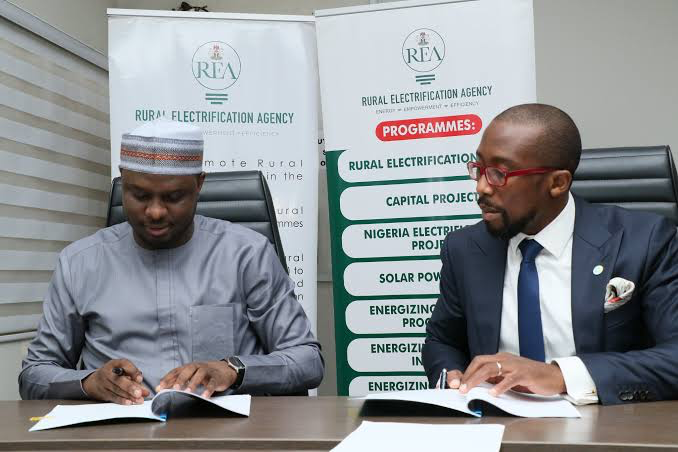The Rural Electrification Agency (REA) of Nigeria has signed six Memoranda of Understanding (MOUs) to enhance energy access across the country. Five of these MOUs are with private renewable energy developers, aiming to deliver a combined capacity of 1,265MW.
The agreements include the commissioning of interconnected mini-grids, isolated mini-grids, and productive use of energy (PUE) projects. These initiatives will electrify peri-urban and rural communities, including markets, businesses, households, public institutions, health clinics, and schools in both weak-grid and off-grid areas.
These projects fall under the Distributed Access through Renewable Energy Scale-up (DARES) project, managed by the REA. This partnership will also introduce new energy service models, including Virtual Power Plants (VPPs), and enable the mass adoption of energy-efficient appliances and PUE devices through sales, distribution, and credit financing.
The breakdown of the MOUs, providing a combined capacity of 1,265MW, is as follows:
- A4&T Power Solutions: 315MW
- Privida Power: 200MW
- Skipper Nigeria Limited: 250MW
- Euxwell Nigeria Limited: 250MW
- Havenhill: 250MW
During the signing ceremony, REA Managing Director and CEO Abba Abubakar Aliyu stated, “This is a landmark event under the DARES program and the introduction of the Renewable Energy Service Companies (RESCOs) model. The RESCO model aims to provide developers with a platform to become utility companies capable of attracting investment to deploy mini-grids.”
The sixth MOU was signed with the global NGO Mercy Corps to strengthen electricity cooperatives and improve electricity access. This agreement aims to build the capacity of the Rural Electricity Users Cooperative Society (REUCS) and provide technical assistance for the Africa Mini-grid Programme. It also supports the development of a sustainable business model for the operations and maintenance of the Korean Energy Project.
Aliyu emphasized the importance of sustainability, saying, “Today’s MOU signing strengthens REA’s drive for project sustainability. We must plan for the end of projects and implement sustainable measures to ensure continuity post-completion.”
The Country Director of Mercy Corps Nigeria, Ndubuisi Anyawu, added, “[We] envision a Nigeria that, no matter how remote, has access to electricity that powers homes, education, healthcare, and social development. This MOU represents a powerful partnership that will mobilize communities to form strong cooperatives ensuring economic growth.”
These MOUs mark a significant step in Nigeria’s efforts to expand energy access and promote renewable energy. The REA’s initiatives are expected to bring much-needed electricity to underserved areas, driving economic and social development.
Frequently Asked Questions about Energy in Nigeria
What is the Rural Electrification Agency (REA) of Nigeria?
REA is the government agency responsible for promoting, coordinating, and providing rural electrification across Nigeria.
What is the rural electrification rate in Nigeria?
Rural areas of Nigeria have a 41.1% grid access rate, with many areas receiving less than 12 hours of electricity per day.
What is Nigeria’s main source of energy?
Major energy sources in Nigeria include coal, petroleum reserves, natural gas, peat, hydroelectricity, solar, and wind.
What percentage of Nigeria has access to electricity?
In 2021, Nigeria’s electricity access rate was 59.5%.
Source: ESI Africa



